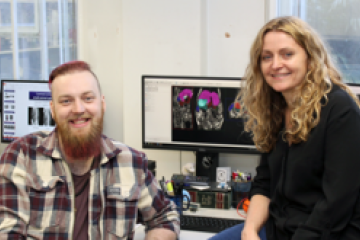PhD Studentship
Development of a 3D mouse atlas tool for improved non-invasive imaging of orthotopic mouse models of pancreatic cancer

At a glance
Completed
Award date
October 2015 - October 2018
Grant amount
£90,000
Principal investigator
Dr Jane Sosabowski
Co-investigator(s)
- Professor Thorsten Hagemann
Institute
Queen Mary University of London
R
- Reduction
- Refinement
Read the abstract
View the grant profile on GtR
